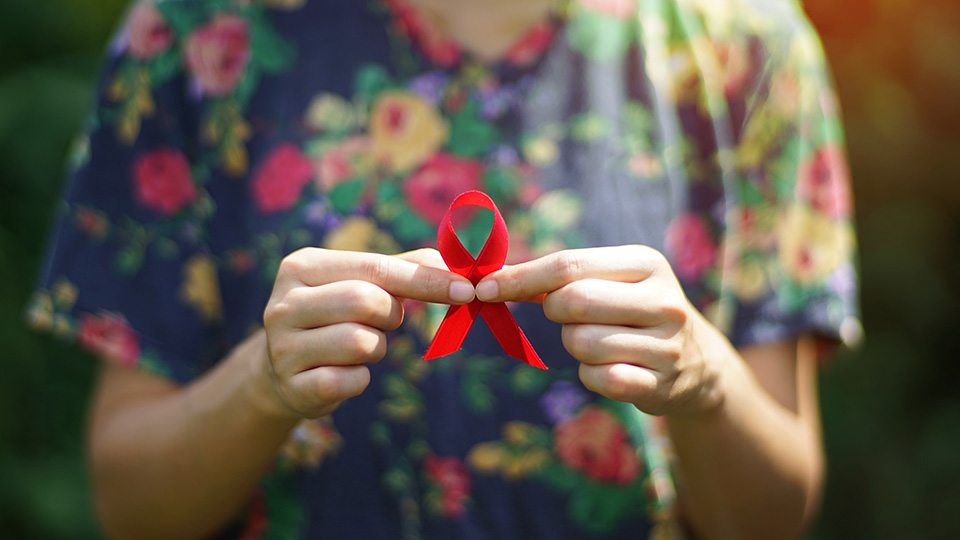World AIDS Day is Dec. 1. And experts say scientific innovations in HIV prevention and treatment remain elusive for many in the U.S. and around the world.
Northwestern Now asked five professors on campus to explain what it will take to one day put an end to the epidemic, which claimed approximately 680,000 lives worldwide in 2020 alone.
Bridge the science-practice gap
“Decades of research have produced highly effective ways of diagnosing, preventing and treating HIV that help put an end to this epidemic. Yet too many people in the U.S. and around the world don’t receive the benefits that these scientific innovations have to offer. Implementation research is a high priority to help bridge the science-practice gap by identifying the best strategies for improving access and use of these HIV interventions by the people who need them the most. As the co-director of the NIH-supported implementation science coordination center, we are providing support and coordination to over 100 NIH-funded projects that represent collaborations between researchers and HIV service providers to help identify best practices for implementing effective HIV interventions.”
- Brian Mustanski, professor of medical social sciences at Northwestern Feinberg School of Medicine, founding director of Northwestern’s Institute for Sexual and Gender Minority Health (ISGMH) and Wellbeing and co-director of the NIH Third Coast Center for AIDS Research.
COVID’s reminder: Pursue health equity
“Over the past four decades, HIV/AIDS has disproportionally affected less-advantaged groups in most societies around the world. Such disproportionate impact is a painful fact that the current COVID-19 pandemic has also reminded us of. In most places, groups affected by HIV/AIDS typically have included sexual and racial minorities, as well as other socially and economically disadvantaged communities. The prevalence of COVID-19, HIV/AIDS, and other health conditions in disadvantaged communities should prompt us all to continue emphasizing the pursuit of social equality, health equity, and improved access to health education and healthcare.”
- Héctor Carrillo, professor of sociology and gender & sexuality studies in the Weinberg College of Arts and Sciences and co-director of The Sexualities Project at Northwestern.
Talk to your kids
“Talking to your kids should be ongoing throughout their childhood and adolescence about a range of things — sex, bodies, consent, gender, pregnancy, relationships, and HIV and STIs. These talks can be awkward or uncomfortable, but I can’t stress how critical they are for the rest of your children’s lives. Talking to kids about these topics early and in an honest, medically accurate, nonjudgmental way makes conversations about HIV and HIV prevention so much easier. If you’re late to the game, it’s also never too late to start.”
- Kathryn Macapagal, clinical health psychologist at Feinberg and associate director of the Center for Translational Health Research and Interventions Advancing Equity for Sexual and Gender Minorities at ISGMH.
Remember this is not a contest
“In addition to remembering the dead and supporting the living who are affected by HIV, let us remember there is no contest between these two pandemics. It’s not a competition. Despite the particulars of the two viruses, they affect a similar viral underclass. The making of a world free of AIDS would make a world free of COVID (and vice versa), because the same underlying causes are driving both pandemics.”
- Steven Thrasher, faculty member in ISGMH and Daniel H. Renberg Chair of Social Justice in Reporting.
Bolster resilience in Black sexual minority men
“HIV infection rates among Black sexual minority men are alarmingly high and continue to make them the most affected group in the U.S. However, I am grateful that there is a movement toward more intersectional and structural approaches to HIV prevention in Black sexual minority men. Coupled with strengths- and asset-based approaches we can further bolster resilience in Black sexual minority men who are able to maintain an HIV-negative status.”
- Jagadīśa-devaśrī Dācus, associate director of ISGMH and research assistant professor.

